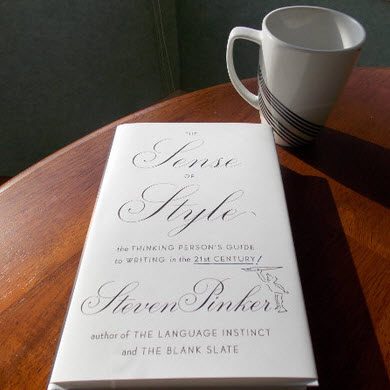 Why do we promote and participate in January 1 Resolutions? We could have started doing whatever it is a month ago and be well into this better way of life by now. The issue could be a plan to improve sleep, lose weight, write a blog, show love, or bring about any other future. A Resolution ( as opposed to a resolution, a resolve, a plan, or a decision) implies that the effort will be complex and that some sort of suffering or struggle will be needed. And further, that the reward will come at a later time and the required patience to wait is overshadowed by the pleasures of other current activities or the rewards of not having to exert effort. Or there is just some emotional signal that says Wait.
Why do we promote and participate in January 1 Resolutions? We could have started doing whatever it is a month ago and be well into this better way of life by now. The issue could be a plan to improve sleep, lose weight, write a blog, show love, or bring about any other future. A Resolution ( as opposed to a resolution, a resolve, a plan, or a decision) implies that the effort will be complex and that some sort of suffering or struggle will be needed. And further, that the reward will come at a later time and the required patience to wait is overshadowed by the pleasures of other current activities or the rewards of not having to exert effort. Or there is just some emotional signal that says Wait.
By announcing a Resolution, we are taking a very small step, making our self more accountable: it’s out there now, and perhaps someone will react and hold me responsible, perhaps just that self with the conscience. Sometimes this first step produces a reward such as feeling virtuous, being pleased, and other steps will follow. But wait, there are hidden dangers. After all, everyone knows that most New Year’s Resolutions are not completed. The Resolution comes with a fantasy, and like Walter Mitty we enjoy these success scenarios and the Resolution becomes its own reward, whether it leads to any desired goal.
The fundamental issue of taking an action toward a goal is the way the brain pathways are constructed. Probably for very good reasons there is a mismatch between the power of rewards (and stress) now, and the power of future rewards. Our brains relatively overvalue the now and undervalue the later. This is a fascinating topic (involving issues like economic discounting, Kahneman’s system 1 and 2, addiction, and Bayesian statistics) but I must defer and procrastinate at this moment for reasons like those we have just been discussing. There are present rewards in putting something off, of relaxing, of keeping the status quo, of considering oneself retired. These can be compared favorably with having to put forth effort, to go to work right now. Therefore, future rewards many months down the line, even admirable ones like better health and feeling well rested every morning, have trouble being as vivid and vital as they might be if they could start tomorrow.
So what can be done? Obviously we sometimes do take action and get things done. Sometimes we learn from our past mistakes, or observe the mistakes of others, and this change leads to an action. But mostly what happens is that the future comes much closer, hits us in the face in unpredicted ways. You get an offer from the unfolding of events that you cannot refuse, like a chest pain, an auto accident, an opportunity or a tragedy.
In addition to learning from mistakes and accepting offers you cannot refuse, there is the possibility of planning ahead to take very small steps, first one, and then another. This is not really a free will bootstrap operation, since your brain is always changing its circuits, even by reading this sentence, and can certainly select one small easy simple step that puts a faint dent in the distant future. You believe that working out daily or hiring a trainer is a good idea? Then as soon as this idea enters your mind, take twenty-one steps in any direction and come back…now…don’t delay. You think that applying behavioral principles to get good sleep will be beneficial? As soon as that thought occurs, set your phone for 7am wakeup…now…;or deny yourself that caffeinated beverage with dinner…tonight.
Not always, but sometimes when I immediately translate that idea or plan or theory into a tiny action, my Resolution seems already implemented.
Happy New Year.


Leave a Reply